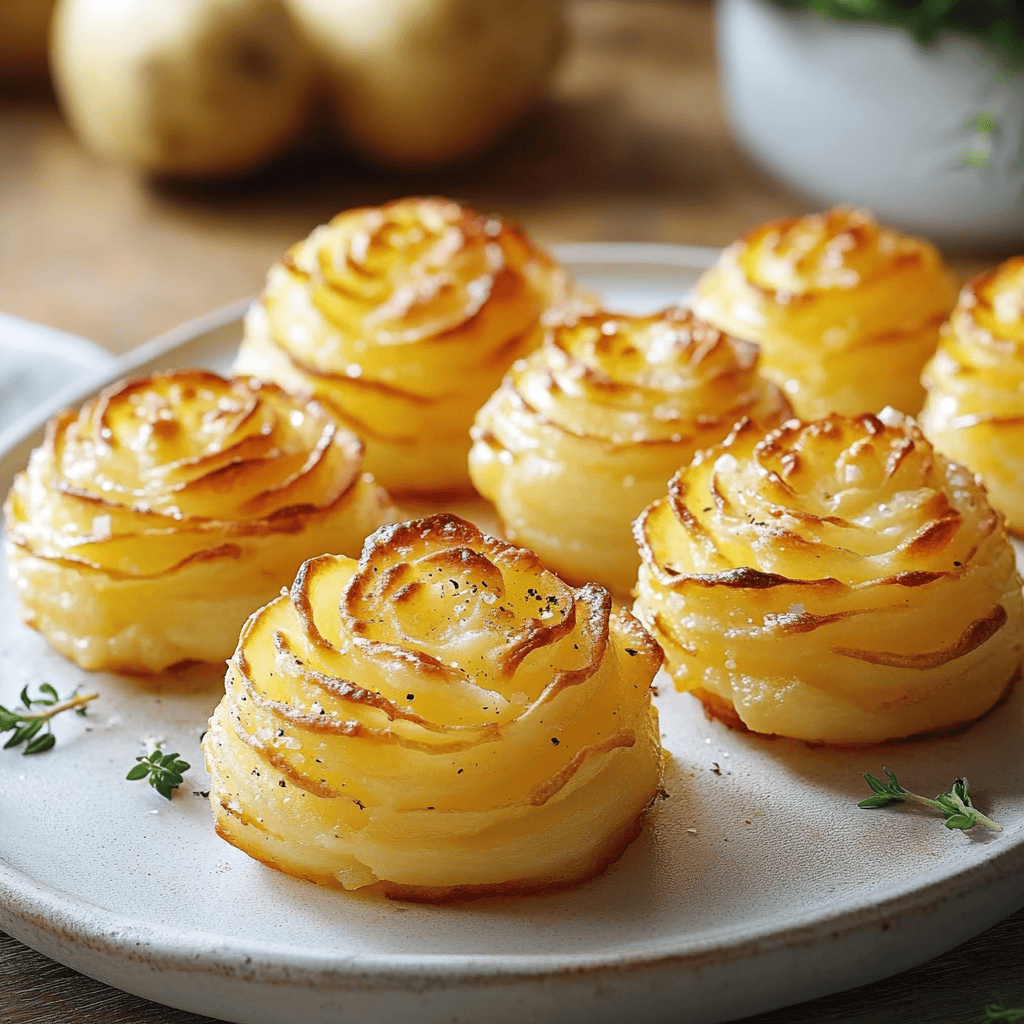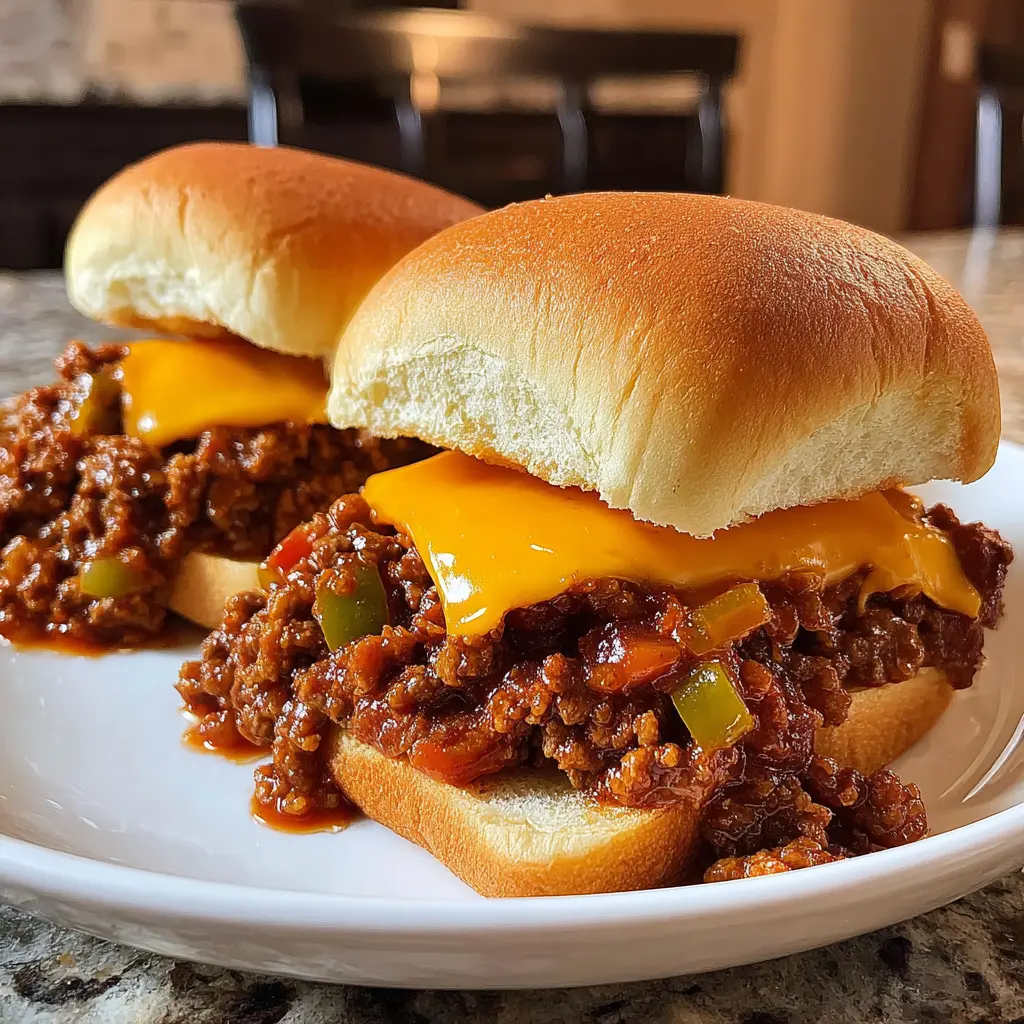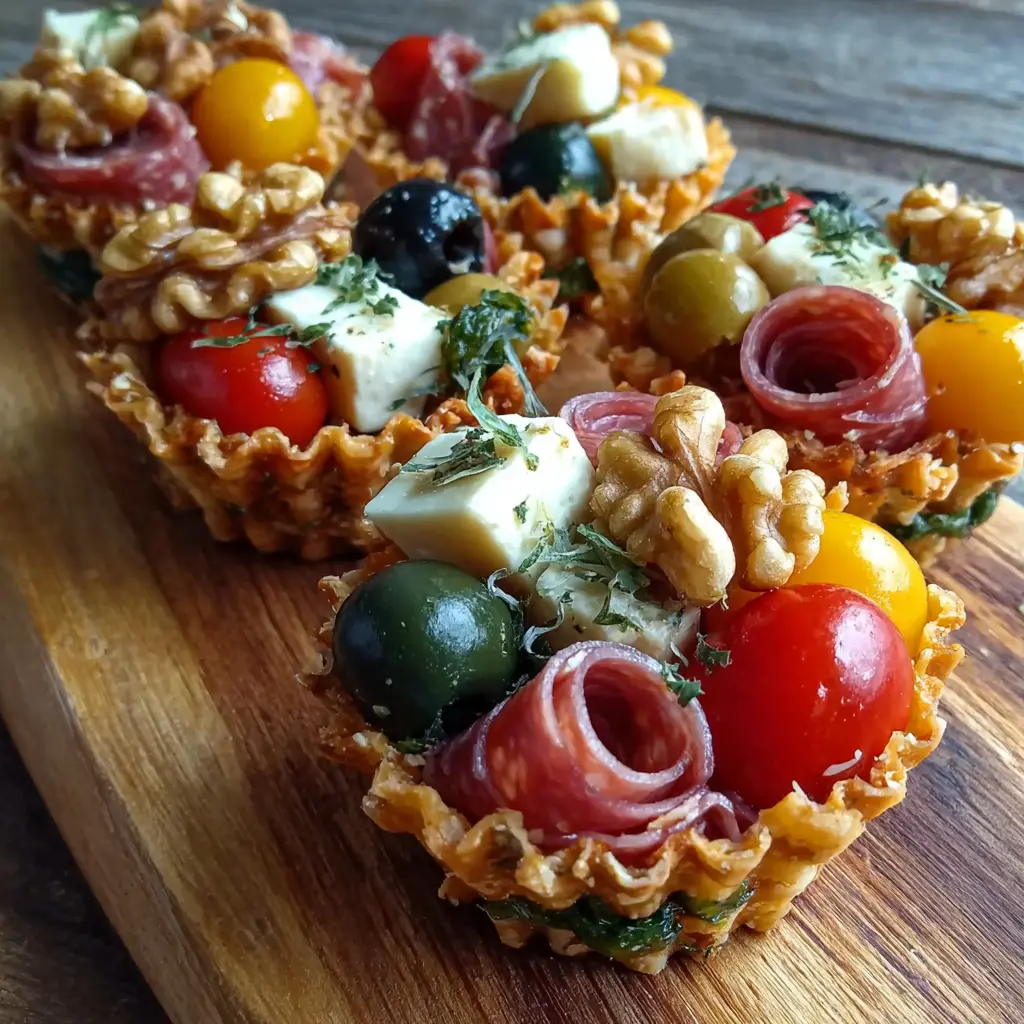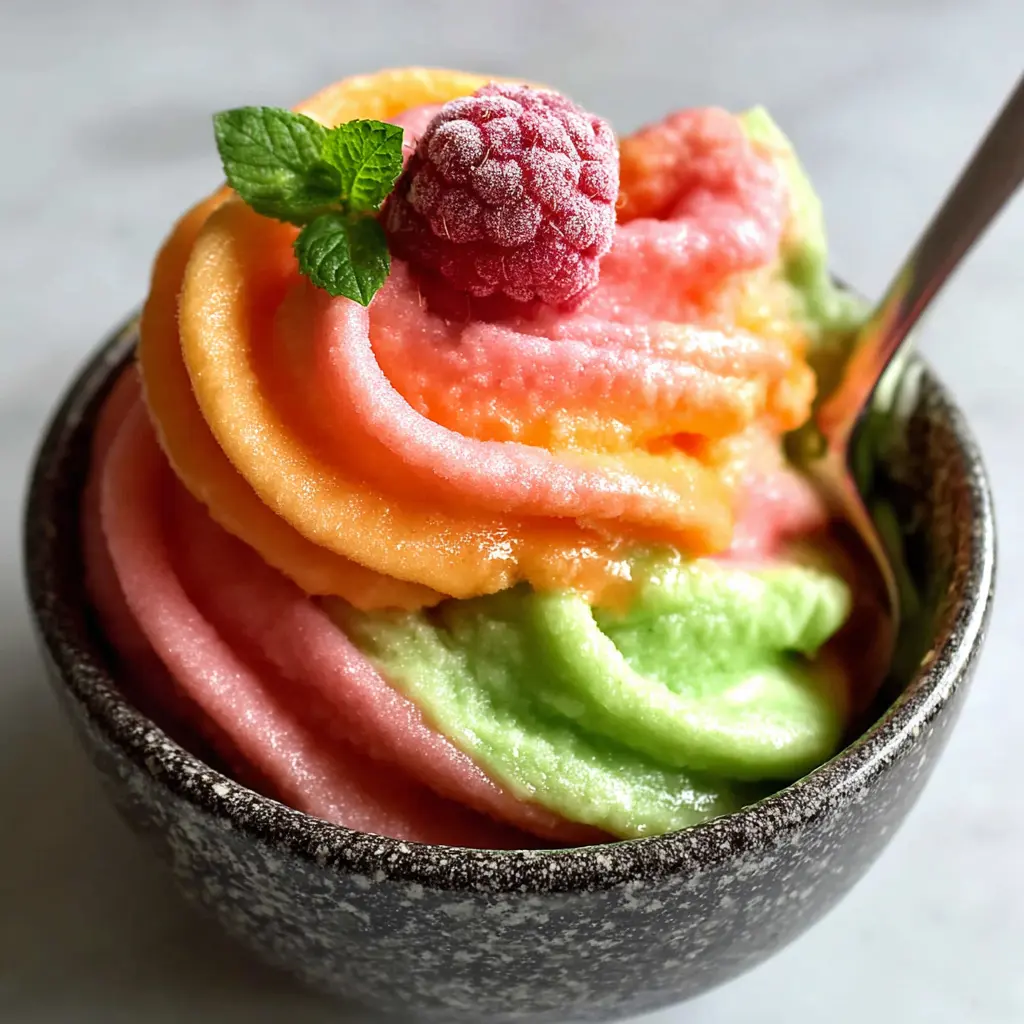Quick Overview
Duchess Potatoes are a delightful twist on traditional mashed potatoes that add elegance to any meal. This classic French dish features creamy and flavorful mashed potatoes that are piped into beautiful shapes and baked until golden brown. Perfect for special occasions or a cozy family dinner, Duchess Potatoes bring both taste and visual appeal to your table. In this article, you will learn how to make these irresistible potato puffs from scratch.
Ingredient Breakdown
Potatoes
You will need about 2 pounds of starchy potatoes, such as Russet or Yukon Gold. These varieties yield the fluffiest texture when mashed. Start by peeling them for a smooth consistency.
Butter
Use 4 tablespoons of unsalted butter for richness. The butter adds flavor and creaminess to the mashed potatoes. Make sure it’s softened at room temperature for easier mixing.
Heavy Cream
Incorporate 1/2 cup of heavy cream to achieve a luxurious texture. This ingredient helps create a rich mouthfeel in your Duchess Potatoes. For lighter options, you can substitute it with milk.
Egg Yolks
Add in 2 large egg yolks for binding and color. The yolks give the Duchess Potatoes a beautiful golden hue while helping maintain their shape during baking.
Salt and Pepper
Season with salt and freshly ground black pepper to taste. Proper seasoning enhances the overall flavor of the dish and brings out the natural sweetness of the potatoes.
Step By Step Recipe: Duchess Potatoes
Boil the Potatoes
Start by placing the peeled potatoes in a large pot filled with cold water. Add a pinch of salt and bring them to a boil over medium-high heat. Allow them to cook for about 20 minutes or until fork-tender. Drain well once cooked.
Mash the Potatoes
While still warm, transfer the drained potatoes into a large mixing bowl. Use a potato masher or ricer to mash them thoroughly until smooth without lumps. This step is crucial for achieving that velvety texture characteristic of Duchess Potatoes.
Mix in Butter and Cream
Next, add the softened butter into the mashed potatoes along with the heavy cream. Use a wooden spoon or spatula to mix until well combined, ensuring that the butter melts completely into the mixture for an even consistency.
Incorporate Egg Yolks
Once your potato mixture is smooth, add in the egg yolks one at a time while stirring continuously. The egg yolks should be fully integrated into the mixture without leaving any streaks behind, which will help bind your potatoes during baking.
Season Accordingly
Taste your potato mixture at this stage and season it generously with salt and pepper based on your preference. Stir well after adding seasonings to ensure every bite is flavorful.
Pipe into Shapes
Preheat your oven to 400°F (200°C). Transfer your potato mixture into a piping bag fitted with a large star tip. Pipe small mounds onto a parchment-lined baking sheet, making sure they are evenly spaced apart for even cooking.
Bake Until Golden Brown
Place your baking sheet in the preheated oven and bake for about 20-25 minutes or until the tops are golden brown and slightly crisp. Keep an eye on them towards the end of cooking so they don’t burn.
Serve Hot
Once baked, remove your Duchess Potatoes from the oven and let them cool slightly before serving. They should have a lovely crust on top while remaining soft inside—perfect for pairing with meats or vegetables!
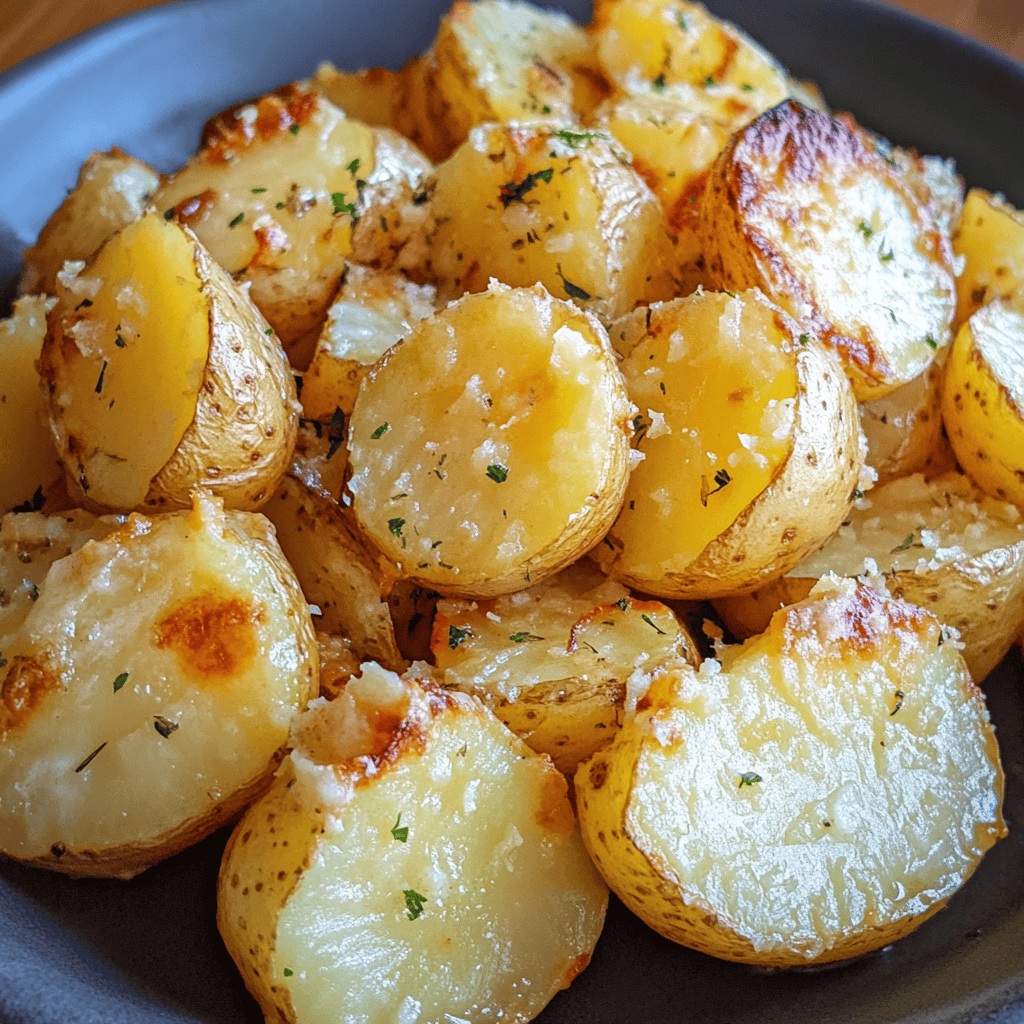
Serving and Storing Tips
Serve Warm
Duchess Potatoes are best enjoyed hot out of the oven alongside roasts or grilled meats. Their fluffy interior paired with crispy edges makes them truly irresistible when served warm.
Store Leftovers Correctly
If you have leftovers, allow them to cool completely before transferring them to an airtight container. Store in the refrigerator where they can last up to three days without losing quality.
Reheat Safely
Reheat leftovers gently in an oven set at 350°F (175°C) until warmed through—about 10-15 minutes should suffice—to restore their texture without drying them out.
Freeze for Later Use
For longer storage, consider freezing uncooked piped Duchess Potatoes on a baking sheet before transferring them into freezer bags once solidified. They can be frozen for up to two months; just bake from frozen when ready!
Mistakes to avoid
One common mistake when making Duchess Potatoes is overcooking the potatoes. When potatoes are too soft, they become watery, which can ruin the texture of your dish. Aim for perfectly cooked potatoes that are tender but not mushy.
Another mistake is not seasoning the potato mixture adequately. Potatoes can be bland on their own, so incorporating salt and other spices is essential. Taste the mixture before piping it onto your baking sheet to ensure it’s flavorful.
A third mistake involves using low-quality butter or cream. High-fat content in dairy adds richness and flavor to Duchess Potatoes. Opt for good-quality butter and heavy cream for the best results.
Lastly, avoid piping the potatoes too close together on the baking sheet. They need space to brown properly and maintain their shape during baking. Arrange them with enough room to allow heat circulation around each mound.
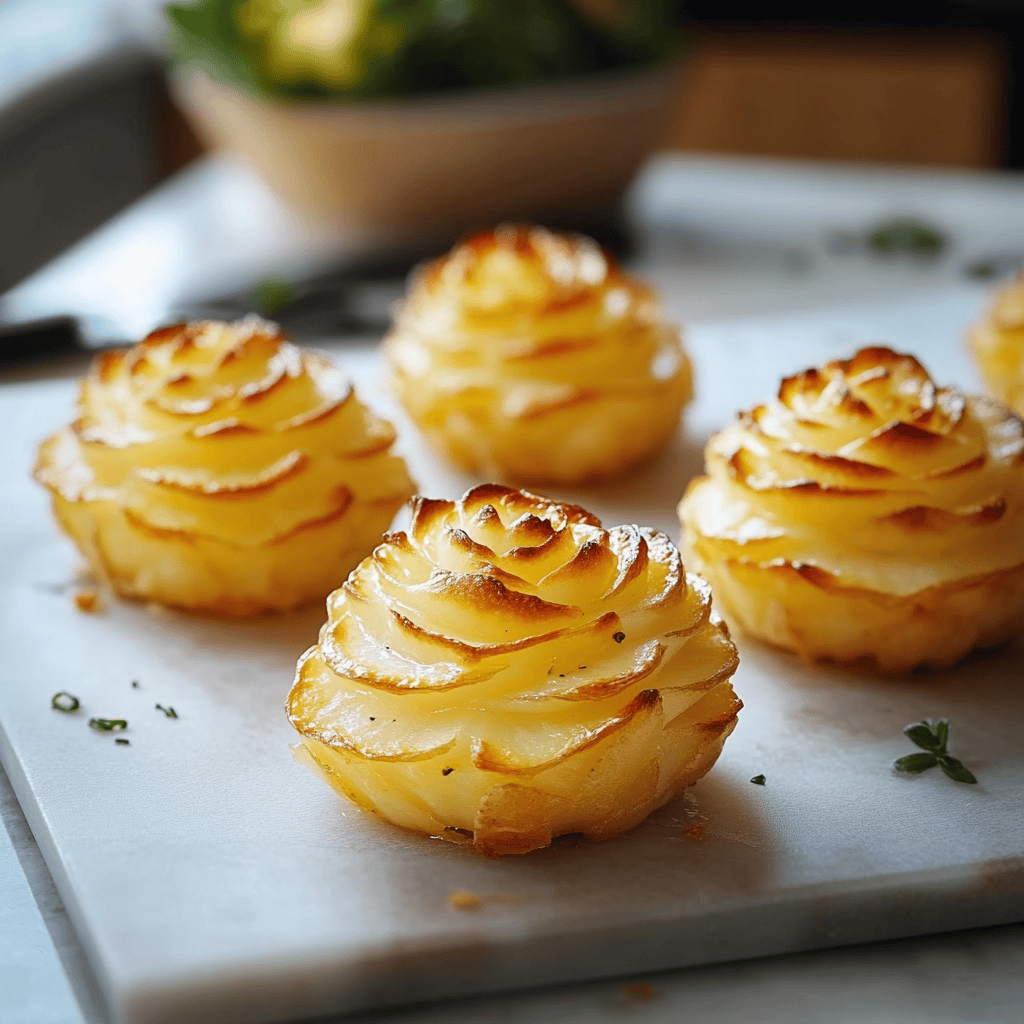
Tips and tricks
For perfect Duchess Potatoes, start with the right type of potato; starchy varieties like Russets or Yukon Golds work best. These types create a creamy texture, making it easier to achieve that fluffy consistency you desire. After boiling, dry your potatoes thoroughly before mashing them. Excess moisture can lead to a soupy consistency; a few minutes in a warm pot on low heat can help evaporate any leftover water.
When mixing in butter and cream, make sure both are at room temperature. Cold ingredients can cause the mixture to seize up and become lumpy. Gradually add your cream until you reach the desired consistency; this will help in achieving a smooth texture.
Piping Duchess Potatoes into decorative shapes allows for an appealing presentation. Use a star-tipped pastry bag for beautiful edges that will crisp up nicely in the oven. To achieve a golden-brown finish, brush lightly with an egg wash before baking.
Lastly, don’t skip resting your Duchess Potatoes before serving. Allowing them to sit for a few minutes after baking allows flavors to develop further and makes it easier for guests to serve themselves.
Suggestions for Duchess Potatoes
Pair Duchess Potatoes with roasted meats like chicken or beef for a classic meal option. Their creamy texture complements savory dishes perfectly while adding an elegant touch to your plate.
Consider adding herbs or cheese into your mixture for extra flavor. Fresh chives or grated Parmesan cheese can elevate the taste profile while enhancing visual appeal when baked.
If you want a lighter version, substitute some of the heavy cream with sour cream or Greek yogurt. This change adds tanginess without sacrificing creaminess, making it a delightful alternative.
For special occasions, serve Duchess Potatoes as part of a buffet spread alongside roasted vegetables or salads. Their unique shape and flavor can impress guests while providing variety on the table.
Finally, if you’re preparing meals ahead of time, feel free to freeze unbaked Duchess Potato mounds on a baking sheet before transferring them to a freezer bag. Bake them directly from frozen when needed, extending their shelf life without compromising quality.
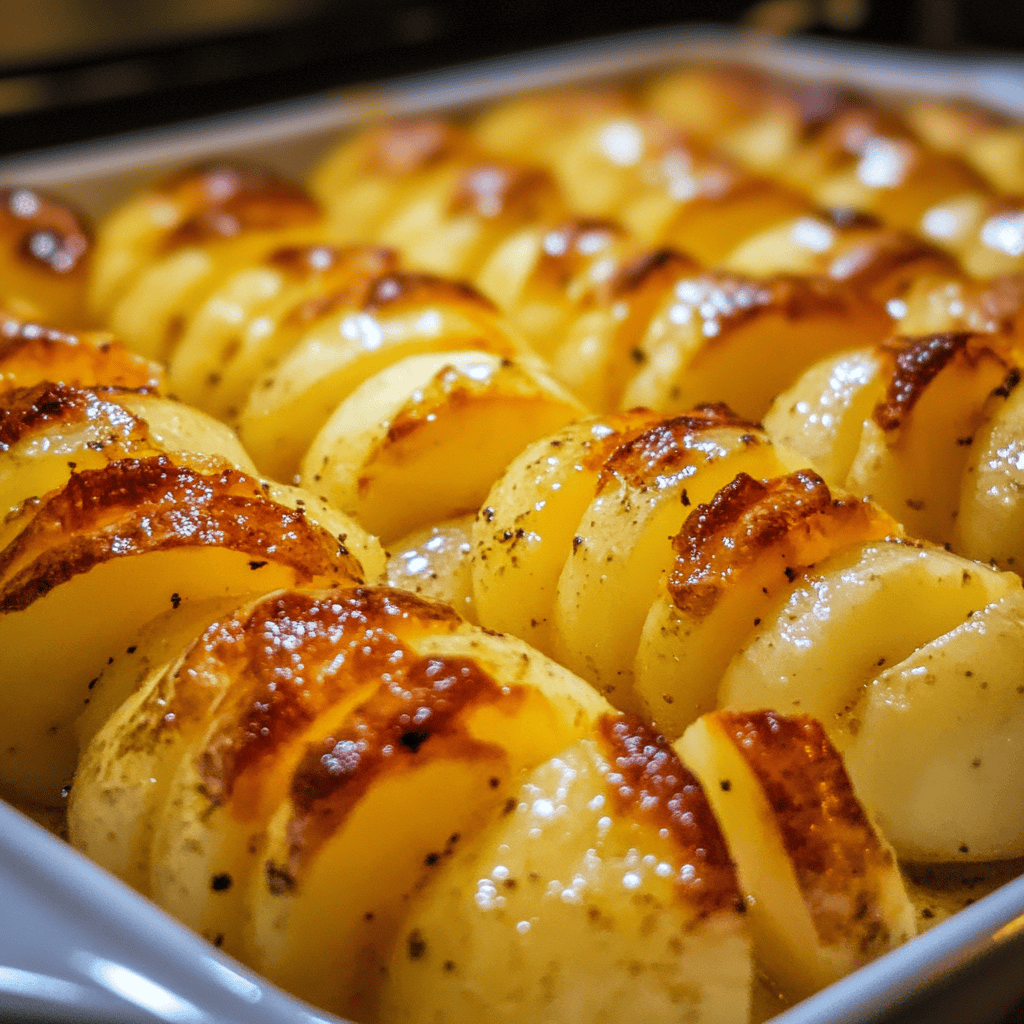
FAQs
What are Duchess Potatoes?
Duchess Potatoes are a classic French dish made from mashed potatoes blended with butter, cream, egg yolks, and seasonings. They are piped into decorative shapes and baked until golden brown on top, creating an elegant side dish perfect for special occasions.
Can I prepare Duchess Potatoes in advance?
Yes! You can prepare Duchess Potatoes ahead of time by piping them onto a baking sheet and freezing them before baking. Once frozen solid, transfer them into an airtight container or freezer bag. Bake directly from frozen when you’re ready to serve.
What types of potatoes are best for making Duchess Potatoes?
Starchy potatoes such as Russets or Yukon Golds are ideal for making Duchess Potatoes due to their fluffy texture when cooked. These varieties absorb flavor well and create a creamy mash that works beautifully in this recipe.
How do I store leftover Duchess Potatoes?
Store leftover Duchess Potatoes in an airtight container in the refrigerator for up to three days. To reheat, place them in an oven preheated to 350°F (175°C) until heated through without becoming overly dry.
Can I add different flavors to my Duchess Potatoes?
Absolutely! You can incorporate various flavors such as garlic powder, fresh herbs like chives or thyme, or even cheese like cheddar or Gruyère into your potato mixture for added depth and richness that complements any meal.
Are there any alternatives to dairy in this recipe?
Yes! If you’re looking for dairy-free options, consider using plant-based butter along with coconut milk or almond milk as substitutes for cream. These alternatives still provide richness while accommodating dietary restrictions without compromising flavor significantly.
Summary
In summary, mastering the art of making Duchess Potatoes involves avoiding common mistakes such as overcooking and improper seasoning while implementing helpful tips like using starchy potatoes and ensuring proper mixing techniques. Incorporating suggestions can elevate this dish further by pairing it thoughtfully with mains and enhancing its flavor profile through herbs or cheese additions. Preparing ahead is also feasible by freezing unbaked portions for future enjoyment without losing quality.

